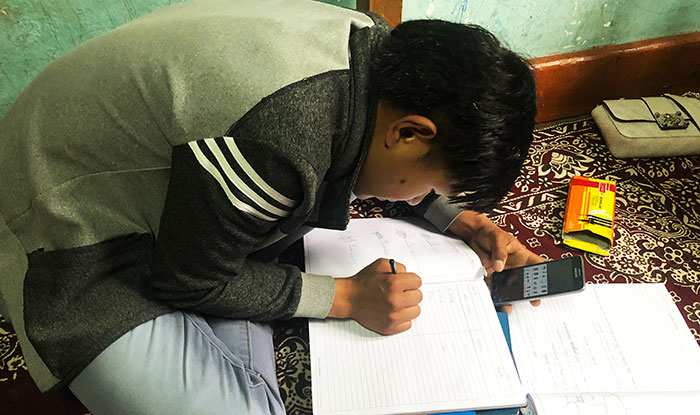Yangyel Lhaden
The use of mobile phones is banned in schools in Bhutan. This has remained a debatable issue. However, the pandemic has made learning at home possible only with the use of mobile phones and television.
Schools have resumed but the ban is still in place. Does it mean the end of e-learning?
A study conducted by a team of doctors in 2018 revealed that four out of 10 adolescents were addicted to internet. It also revealed that the internet addiction rate in Bhutan is highest in the southeast region.
The Teachers of Bhutan Volunteers (VTOB) shared their concerns about teacher’s perspective on the use of mobile phones by students.
VTOB conversation is an informal platform for teachers to share their opinions.
The teachers said in the digital age there was no way they could impose the ban. The teachers said that education system should include gadgets to aid learning with guidelines on use of mobile phones in school.
“Is the ban system taking away privilege of the students who are digital citizen by not allowing use of mobile phone in school?” asked a teacher of Lobesa Primary School, Sonam Norbu. He said that Bhutan could ill afford to continue with traditional learning.
Bhutan Education Blueprint (2014-2024) aspires to elevate the Bhutanese education system. Leveraging ICT for learning is one of the significant components of the blueprint. Gembo Tshering (PhD), lecturer of Paro College of Education said in one of his earlier articles that 21st Century technologies contributed towards better teaching and learning.
The pandemic necessitated e-learning after schools had to be closed which presented myriad challenges to students, teachers, and parents.
A teacher said that when he informed a parent that his son had not attended a single lesson in google classroom, the parent said that he had given his son a phone.
Tshering Zam, a teacher of Taba Lower Secondary School, said the benefits of e-learning could be harnessed only if both teachers and parents monitor and guide the students.
Phub Gyeltshen, a teacher from Lunana Primary School said that e-learning could not be initiated in Lunana. He said that if e-learning must be included for teaching-learning the students of Lunana would be left behind. “The facilities to enable e-learning should be made accessible to remote villages.”
Karma Yangden, a teacher from Changzamtog Primary School said that some students approached her with doubts about e-learning lessons. “It improved collaboration and classroom participation through online platforms.”
The teachers suggested various approaches with the use of mobile phones in school.
Dechen Lhamo, a teacher from Dewathang Primary School said that mobile phones could be used as one of the teaching materials. Karma Yangden said that the students could use mobile phones but the teachers must add value by guiding them. Layki Tshering, a teacher from Shengana Middle Secondary School said that Class VI and above students could be allowed to use mobile phones.
“If e-learning is the new normal, then it will benefit both students and teachers as there are many applications that provide educational benefits such as reminder for homework. It can encourage student participation,” Karma Yangden said.


